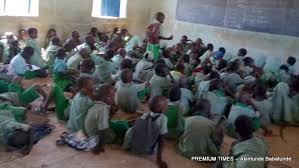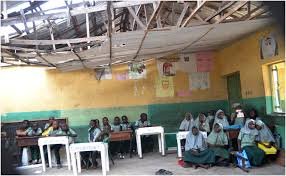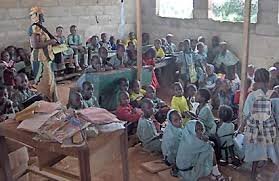
Editorial Board, Media360Impact
While nations across the globe are doubling down on investments in knowledge, innovation, and the next generation, Nigeria continues to gamble with its most valuable asset: its youth.
From overcrowded classrooms to underpaid teachers, dilapidated infrastructure to obsolete curricula, Nigeria’s education system is in a state of slow collapse. Public schools in many parts of the country are barely functioning, and the results are damning. Each year, WAEC, NECO, and JAMB results reveal the same terrifying trend: failure is becoming normalized.
But what did we expect?

We underfund education consistently, allocating a fraction of our national budget to a sector that should be the bedrock of national development. We politicize university leadership, turn teachers’ welfare into an afterthought, and ignore critical issues of curriculum reform and digital integration.
In many government schools, students learn under trees or in classrooms without roofs, chairs, or textbooks. In others, teachers are forced to teach without materials or motivation, while school administrators grapple with meager funds and bloated bureaucracies.
University lecturers, under the umbrella of ASUU, continue to raise red flags yet each strike is met with indifference and delay. When tertiary institutions are shut down for months due to industrial action, it sends a clear message: education is not a priority.
The ripple effects are everywhere. We now have a generation of half-baked graduates, many of whom lack the basic skills to compete in today’s fast-evolving job market. Employers complain that Nigerian graduates are unemployable — not because they are unintelligent, but because the system has failed to equip them for the real world.

Meanwhile, private education has become a luxury for the privileged few, creating a widening gap between the rich and poor. Education, which should be the great equalizer, has become a tool of division. The result is a deeply fractured society where social mobility is increasingly rare.
And the brain drain continues. Talented young Nigerians are fleeing the country in droves not just for greener pastures, but simply for the chance to learn in functional, forward-looking environments. This exodus robs the nation of its brightest minds and undermines any hope of future progress.
It doesn’t have to be this way.
Education is the foundation of every great nation the cornerstone of innovation, economic development, civic responsibility, and national unity. Without it, our dreams of progress are dead on arrival.
We therefore call on the federal and state governments to declare a state of emergency in the education sector. This isn’t a policy suggestion; it is a national imperative.
Increase funding for public education across all levels.
Revamp and standardize teacher training programs, and make the profession attractive again.
Upgrade school infrastructure from classrooms to laboratories and libraries to dormitories.
Overhaul the curriculum to reflect 21st-century realities: digital skills, entrepreneurship, critical thinking, and environmental awareness must become core subjects.

Invest in educational technology to bridge the digital divide and connect students to global knowledge resources.
Listen to educators, parents, and students who live the crisis daily and build reforms based on their real needs, not political convenience.
Nigeria cannot afford to continue ignoring this crisis. A broken education system is a ticking time bomb — and when it explodes, it won’t just affect classrooms. It will affect our economy, our security, our unity, and our future as a nation.
The cost of inaction will be far greater than the cost of reform.








